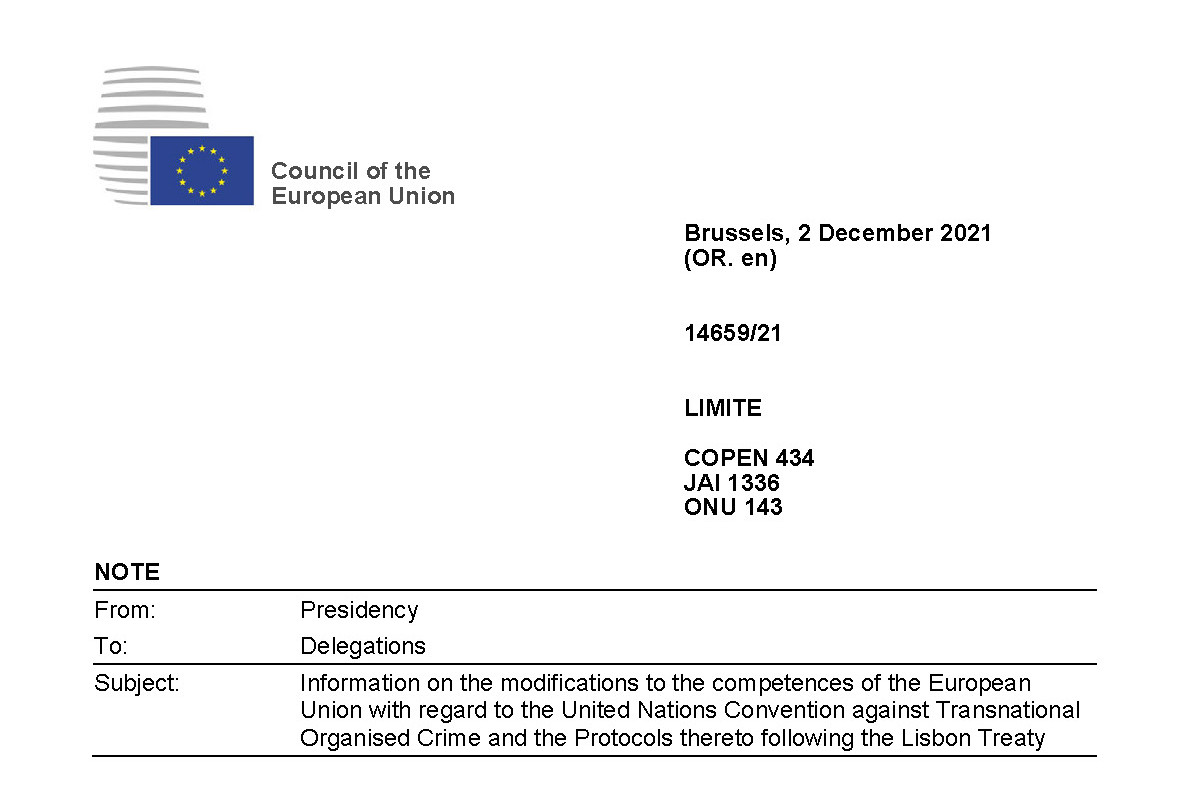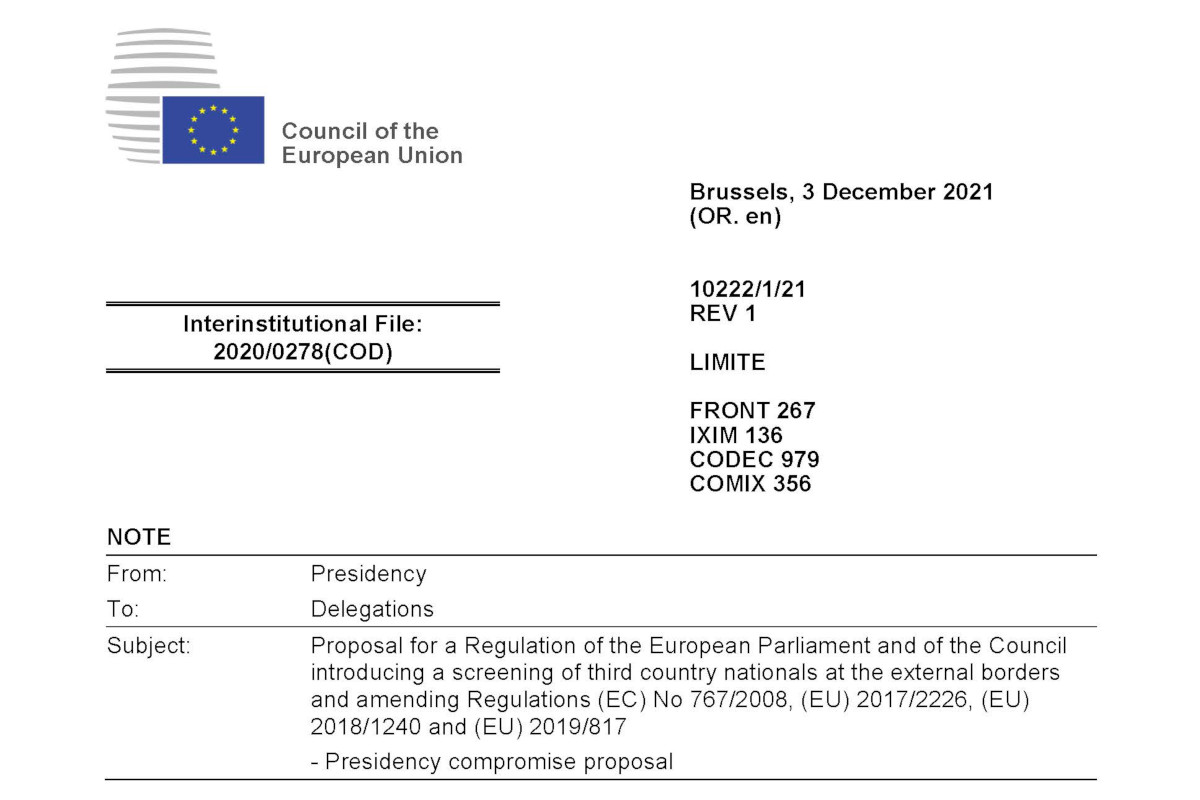UN Convention on Transnational Organised Crime: EU competences
Topic
Country/Region
07 December 2021
More than a decade after the Lisbon Treaty entered into force, the European Commission has decided to notify the United Nations of the competences of the EU under the Convention on Transnational and Organised Crime, and its protocols on migrant smuggling and human trafficking.
Support our work: become a Friend of Statewatch from as little as £1/€1 per month.

NOTE from: Presidency to: Delegations: Information on the modifications to the competences of the European Union with regard to the United Nations Convention against Transnational Organised Crime and the Protocols thereto following the Lisbon Treaty (Council doc. 14659/21, LIMITE, 2 December 2021, pdf)
"This information concerns the modifications to the competences of the European Union (‘EU’ or ‘Union’) with regard to matters governed by the United Nations Convention against Transnational Organised Crime (UNTOC) and the Protocols thereto[1] since the entry into force of the Treaty of Lisbon[2].
With the entry into force of the Treaty of Lisbon, the powers of the European Union that succeeded the European Community have changed. This change creates the legal obligation to inform the depositary of the new competences and to specify the scope and extent of the EC (now EU) competences, pursuant to Article 36(3) UNTOC, Article 21(3) of the Protocol against Migrant Smuggling, and Article 16(3) of the Protocol against Trafficking in Persons. The information contained below supplements the information contained in the notification of 8 March 2010 to the Secretary-General of the United Nations, in his capacity as depositary of the UN conventions.[3]
[1] As far as the Protocol on Firearms is concerned, a new Declaration of Competence is not required. The EU does not need to modify the declaration in light of the revision of Directive 921/477 /EEC on control of the acquisition and possession of weapons: Directive (EU) 2017/853 of 17 May 2017 amending Directive 91/477/EEC on control of the acquisition and possession of weapons, OJ L 137/22 of 24.5.2017. The text of the current declaration is still correct, as it does not refer to specific EU legislation and thus capturing the new Directive: "[t]he European Union has exclusive competence […] as regards provisions of the agreement which may affect or alter the scope of common rules adopted by the European Union". It has "adopted rules as regards notably the fight against illicit manufacturing of and trafficking in firearms, regulating standards and procedures on commercial policy of the Member States concerning in particular record keeping, marking of firearms, deactivation of firearms, requirements for exports, import and transit licensing authorisation systems strengthening of controls at export points and brokering activities."
[2] The Treaty of Lisbon amending the Treaty on European Union and the Treaty establishing the European Community (OJ C 306, 17.12.2007), entered into force on 1 December 2009 (https://www.europarl.europa.eu/factsheets/en/sheet/5/the-treaty-of-lisbon )
[3] https://treaties.un.org/pages/historicalinfo.aspx#EuropeanUnion"
Our work is only possible with your support.
Become a Friend of Statewatch from as little as £1/€1 per month.
Spotted an error? If you've spotted a problem with this page, just click once to let us know.

